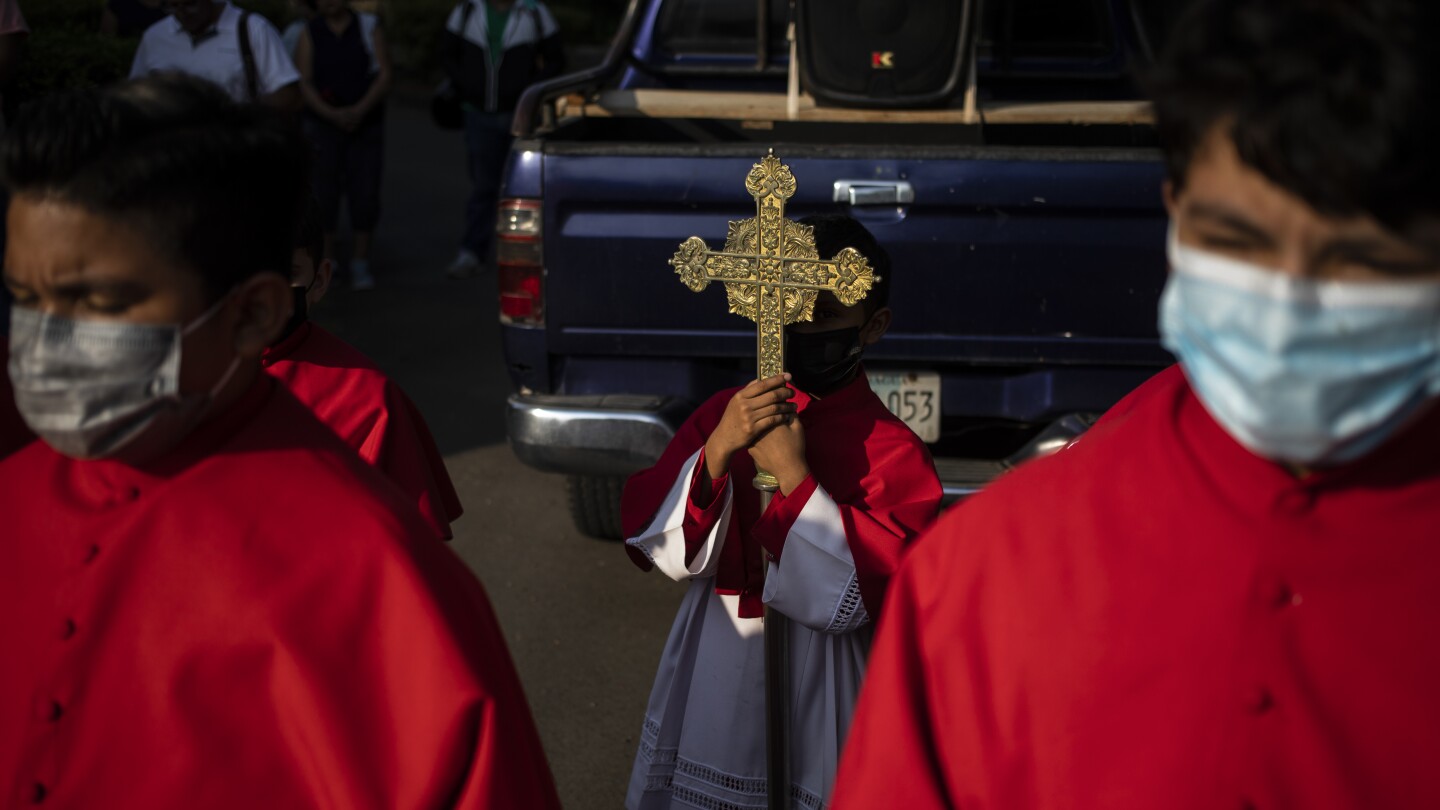Nineteen priests kicked out of the country, dozens of incidents of harassment and church desecrations, rural areas lacking worship and social services: the situation for Catholic clergy and faithful in Nicaragua is only worsening in 2024, according to exiled priests, laypeople in the Central American country and human rights advocates.
The fear of the ongoing crackdown by President Daniel Ortega – on the Catholic Church in particular but not sparing evangelicals – has become so pervasive that it is silencing criticism of the authoritarian government and even mentions of the repression from the pulpit.
“All the time the silence gets deeper,” said Martha Patricia Molina, a Nicaraguan lawyer who fled to the United States. Her work recording hundreds of instances of church persecution recently won her an International Religious Freedom Award from the U.S. State Department.
“If it’s dangerous to pray the rosary in the street, it is exceedingly so to report attacks,” Molina said.



This is the best summary I could come up with:
The fear of the ongoing crackdown by President Daniel Ortega – on the Catholic Church in particular but not sparing evangelicals – has become so pervasive that it is silencing criticism of the authoritarian government and even mentions of the repression from the pulpit.
The “unprecedented exiling of critical voices” – from religious leaders to journalists and artists – in Nicaragua amounts to a “total censorship plan,” said Alicia Quiñones, who leads the freedom of expression organization PEN International in the Americas.
It’s become nearly impossible to do independent reporting in Nicaragua, she added, citing last year’s imprisonment of a journalist on the charge of “fake information” after he covered an Easter celebration when public Catholic feasts have largely been barred.
Nicaragua’s congress, dominated by Ortega’s Sandinista National Liberation Front, has shuttered more than 3,000 nongovernmental organizations, including Mother Teresa’s charity, creating a major gap in social services especially in rural areas.
In addition to many diocesan assets, the government confiscated the prestigious University of Central America, whose Jesuit leaders had opened the doors to student protestors fleeing police and paramilitary attacks.
Managua’s Auxiliary Bishop Silvio Báez has been one of the most outspoken critics of Nicaragua’s repression from the Miami area, where he is based after the pope asked him to leave his country to avoid violent threats.
The original article contains 1,202 words, the summary contains 219 words. Saved 82%. I’m a bot and I’m open source!